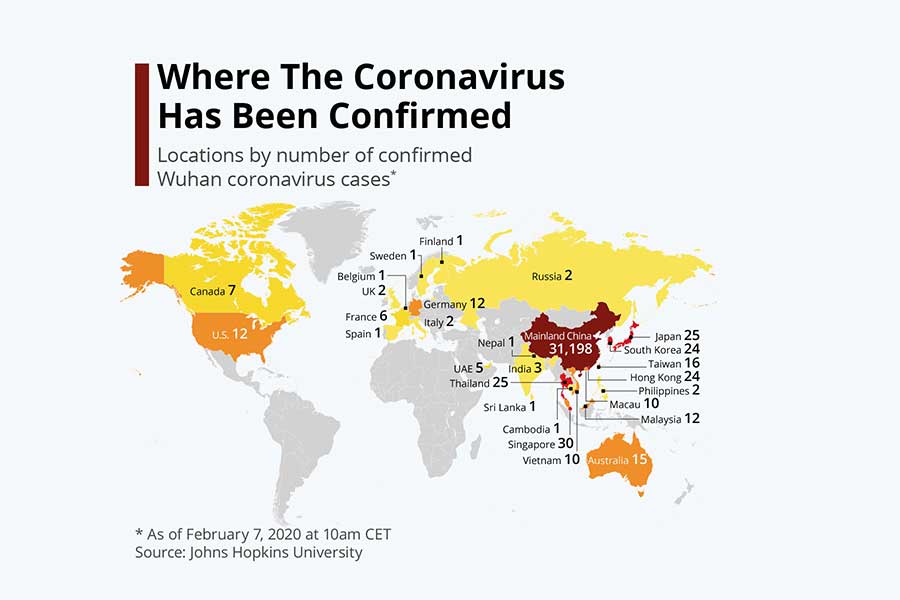
Viewpoints | Apr 06,2024
Jul 31 , 2021
By Bjorn Lomborg
Headlines worldwide tell us that hundreds have died after the recent heat waves in Canada and the northwestern United States. The stories invariably blame climate change and admonish us to tackle it urgently. However, they mostly reveal how one-sided climate alarmist reporting leaves us poorly informed.
The stories are based on a kernel of truth. Global warming is a real and human-made problem that needs addressing. And as temperatures increase, it will make heat waves more likely. But they turn a blind eye to reporting the whole story and ask us to focus on the least effective ways to help.
Heat deaths are beguilingly click-worthy when bodies pile up during a single news cycle, primed to be blamed on global warming. Yet, most heat deaths happen without a news crew to document them. Studies show that heat kills about 2,500 people every year in the US and Canada. Heat deaths are actually a bigger problem than the news reports would suggest.
However, and almost entirely ignored by politicians and media, rising temperatures also reduce cold waves and cold deaths. Cold restricts blood flow to keep our core warm, increasing blood pressure and killing through strokes, heart attacks, and respiratory diseases. Those deaths are rarely reported because they don’t fit the current climate narrative. Of course, if they were just a curiosity, the indifference might be justified, but they are not. Each year, more than 100,000 people die from cold in the US and 13,000 in Canada — more than 40 cold deaths for every heat death.
Indeed, cold deaths vastly outweigh heat deaths worldwide. This is not just true for cold countries like Canada but also warmer countries like the US, Spain and Brazil. Even in India, cold deaths outweigh heat deaths by seven to one. Globally, about 300,000 deaths are caused each year by heat, whereas almost 1.7 million people die of cold.
A recent widely reported study found that higher temperatures are now responsible for about 100,000 of those heat deaths. But the researchers ignored cold deaths. A landmark study in Lancet shows that climate change over the past decades has across every region avoided more cold deaths than it has caused additional heat deaths. On average, it has avoided upwards of twice as many deaths resulting in perhaps 200,000 fewer cold deaths each year.
Moreover, when reporting emphasises the need to cut CO2, it pushes some of the least effective ways to help future victims of heat and cold.
Climate policy will, at best, slightly slow the increase in heat deaths. We already know much more effective and simpler ways to help. Heat deaths are generally declining in countries with good data, because heat deaths can be effectively tackled with more widely available air conditioning, heat alerts, open public pools and air-conditioned malls while encouraging people to use fans and drink plenty of water. This is abundantly clear for the US: it has seen increasing hot days since 1960, affecting a much larger population. Yet, the number of heat deaths has halved. The rest of the world needs access to the same simple technologies to reduce heat deaths drastically.
Tackling cold deaths turns out to be much harder because it requires well-heated homes over weeks and months. Moreover, strong climate policies will increase heating costs and make cold deaths even more prevalent.
Researchers have looked at the natural experiment in the US that happened since 2010 when fracking delivered a dramatic reduction in natural gas costs. This made gas-heated homes warmer and safer because, especially, poorer households could afford better heating. The study estimated that these lower energy prices save about eleven thousand Americans from dying in winter annually. This alone saves four times the lives lost from all North American heat deaths.
If climate policy is to work, it has to drive up prices of energy to reduce consumption. A climate policy that drives gas prices back up will mean fewer people will be able to afford to heat their homes adequately, and the consequent death rate will go back up.
Climate change is still a real problem that affects many other areas than heat and cold. We need to tackle it effectively through innovation to make green energy cheap enough that everyone will want to switch.
But when it comes to tackling heat and cold deaths, current climate reporting leaves us poorly informed. It makes us focus on the costliest and least effective way to help future victims of heat and cold. It even risks exacerbating cold deaths by raising heating costs. Moreover, it simply tells us a misleading story of heat deaths, ignoring the much greater avoided cold deaths. For now, global warming saves us more deaths than it causes, possibly 100,000 lives each year.
PUBLISHED ON
Jul 31,2021 [ VOL
22 , NO
1109]


Viewpoints | Apr 06,2024

My Opinion | Mar 04,2023

Radar | May 11,2024

Radar | Nov 29,2020

Commentaries | Jan 13,2024

Commentaries | Jun 07,2025

View From Arada | Feb 08,2020

Fortune News | Apr 30,2022

Fortune News | Jan 09,2021

Radar | Jul 13,2019

My Opinion | 131981 Views | Aug 14,2021

My Opinion | 128369 Views | Aug 21,2021

My Opinion | 126307 Views | Sep 10,2021

My Opinion | 123925 Views | Aug 07,2021

Dec 22 , 2024 . By TIZITA SHEWAFERAW
Charged with transforming colossal state-owned enterprises into modern and competitiv...

Aug 18 , 2024 . By AKSAH ITALO
Although predictable Yonas Zerihun's job in the ride-hailing service is not immune to...

Jul 28 , 2024 . By TIZITA SHEWAFERAW
Unhabitual, perhaps too many, Samuel Gebreyohannes, 38, used to occasionally enjoy a couple of beers at breakfast. However, he recently swit...

Jul 13 , 2024 . By AKSAH ITALO
Investors who rely on tractors, trucks, and field vehicles for commuting, transporting commodities, and f...

Jul 5 , 2025
Six years ago, Ethiopia was the darling of international liberal commentators. A year...

Jun 28 , 2025
Meseret Damtie, the assertive auditor general, has never been shy about naming names...

Jun 21 , 2025
A well-worn adage says, “Budget is not destiny, but it is direction.” Examining t...

Jun 14 , 2025
Yet again, the Horn of Africa is bracing for trouble. A region already frayed by wars...

Jul 6 , 2025 . By BEZAWIT HULUAGER
The federal legislature gave Prime Minister Abiy Ahmed (PhD) what he wanted: a 1.9 tr...

Jul 6 , 2025 . By YITBAREK GETACHEW
In a city rising skyward at breakneck speed, a reckoning has arrived. Authorities in...

Jul 6 , 2025 . By NAHOM AYELE
A landmark directive from the Ministry of Finance signals a paradigm shift in the cou...

Jul 6 , 2025 . By NAHOM AYELE
Awash Bank has announced plans to establish a dedicated investment banking subsidiary...